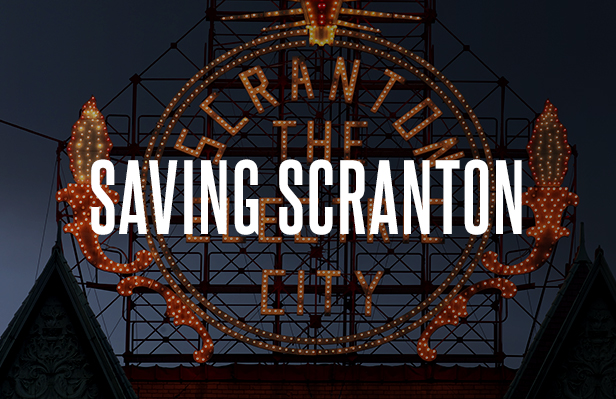Media

Can a Dwight Schrute Save Scranton?
Dwight K. Schrute is an employee at Dunder Mifflin—a fictional Scranton paper company featured in NBC’s The Office. And he just may be the key to overcoming the city’s very real economic decline.
But before offering a way forward for Scranton, it’s important to understand why the city is struggling. A new paper from the Mercatus Center does an excellent job detailing the source of Scranton’s troubles.
The authors—Adam Millsap and Eileen Norcross—identify Scranton’s inability to adapt to changing economic conditions as one of the main reasons for the city’s economic and fiscal problems.
They specifically cite economist Ed Glaeser who wrote, “In the coal towns of central Pennsylvania, exodus, not innovation, was a more common response.” Glaeser's rhetoric matches reality. In 1930, the city’s population was 143,433. In 2014, it was just 75,281.
Regrettably, government policies only made things worse. Spending and taxes rose—forcing fewer taxpayers to pay for bloated budgets driven by public sector benefits. Millsap and Norcross cite the inflexibility of Pennsylvania’s collective bargaining process as the main culprit:
Act 111 is intended to give police and firefighters’ unions binding arbitration in exchange for a prohibition against striking. [26] However, the law evolved to “give uniformed employees the upper hand when it comes to collective bargaining.” [27] When negotiations between the city and unions break down, an arbitration panel of three people is selected. Municipalities are required to pay the full cost of arbitration, regardless of ability to pay. Arbitration sessions are not open to the public. The municipality has limited ability to appeal the panel’s decisions.
The chart below illustrates spending growth for police and fire services—a product of the state’s broken collective bargaining process.
Officials have tried to improve Scranton’s finances with a combination of tax increases, cost cutting, and asset sales but costs, thanks to pensions, continue to soar. They’ve also utilized government-subsidized development projects to boost economic growth but to no avail. Government-centric solutions simply aren't working.
To truly turn Scranton around, dramatic changes to state and local policies are necessary. At the local level, Millsap and Norcross recommend improving the city’s business climate by reducing the overall tax burden. Controlling spending is critical too. Officials can do this by privatizing government functions—the city's parking authority is one possible option, according to the report.
At the state level, officials must reform the collective bargaining process to help distressed cities get control of their budgets. As it stands now, collective bargaining law imposes costs on cities without taking into account their ability to pay. By giving local officials more autonomy to negotiate with unions, they can better protect local taxpayers.
Back to Dwight Schrute. If you know the character, he has a reputation for being entrepreneurial and hardworking (also, a little quirky). If distressed places like Scranton and Uniontown are going to experience a revitalization, that's exactly the kind of people they'll need to attract.
Ultimately, government can only lay the foundation for an economic turnaround. But if that foundation is strong, innovative, educated, and hardworking people can and will build upon it.